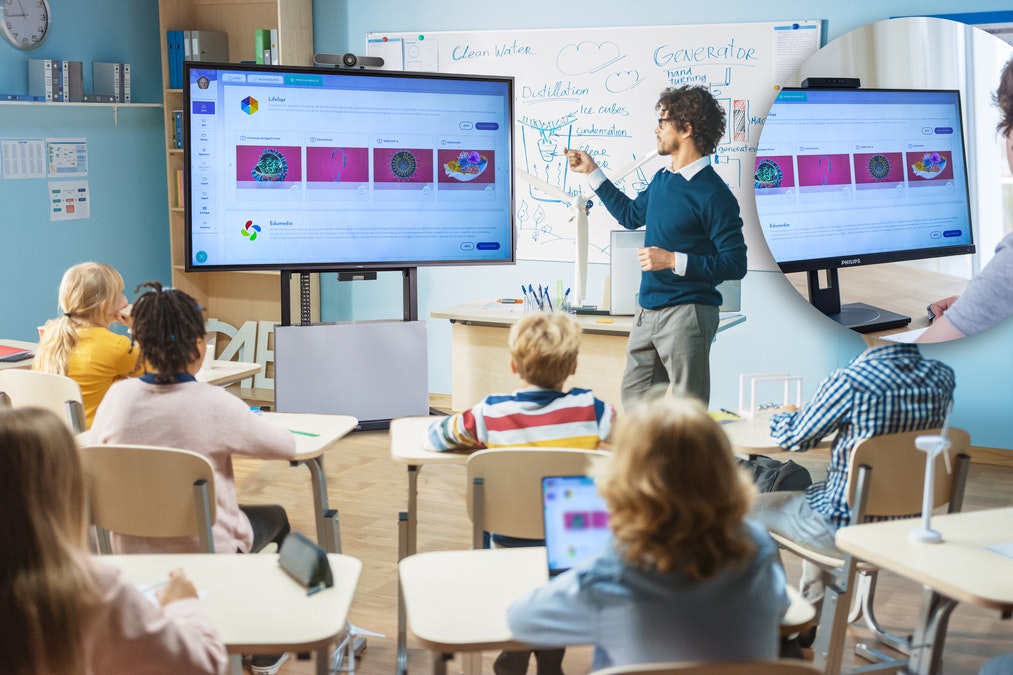Comprehensive Primary Science Tuition Singapore for Primary School Students
Wiki Article
Discovering the Various Training Strategies in Key Science Education Today
Inquiry-based learning, hands-on experiments, and the integration of modern technology are redefining exactly how educators engage young minds. Additionally, collective approaches and separated direction are being used to cater to the diverse demands of students, boosting both interaction and understanding.Inquiry-Based Understanding
Inquiry-Based Knowing (IBL) is a pedagogical strategy that encourages trainees to discover scientific concepts through questioning, examination, and hands-on trial and error. This method highlights the function of students as energetic individuals in their knowing, advertising vital thinking and problem-solving skills. By engaging with real-world concerns, pupils end up being curious and inspired, which improves their understanding of clinical principles.In IBL, educators act as facilitators, directing trainees as they navigate their inquiries instead of providing info straight. This student-centered method enables distinction, suiting numerous discovering designs and rates. Pupils develop skills in creating theories, designing experiments, and assessing information, which are crucial for scientific literacy.
Furthermore, IBL promotes collaboration among students, motivating them to share ideas and findings. This cumulative questions promotes social abilities and a sense of neighborhood within the classroom. The procedure of questions urges durability, as students find out to welcome failure as a stepping stone towards understanding.
Hands-On Experiments
Hands-on experiments are an essential element of effective science education, enhancing the principles of inquiry-based learning. These experiments enable students to involve directly with clinical ideas, promoting a deeper understanding with experiential learning. By manipulating products and observing outcomes, young students can understand abstract concepts in tangible methods.Such tasks promote essential reasoning and analytical abilities, as students assume outcomes, conduct experiments, and assess results. This process encourages them to ask questions, fine-tune their understanding, and create a scientific mindset. Moreover, hands-on experiments can be customized to diverse understanding styles, making certain that all students have the possibility to involve meaningfully with the content.
Additionally, hands-on experiments often motivate cooperation amongst peers, advertising synergy and communication abilities. Functioning in groups allows students to share concepts, review searchings for, and pick up from one another, which boosts their total instructional experience.
Including hands-on experiments right into the main scientific research educational program not just improves the finding out environment but also grows a lifelong passion in scientific research. By proactively participating in their education and learning, trainees are most likely to develop a passion for scientific inquiry that expands past the class.

Technology Integration
Integrating innovation into primary scientific research education and learning has actually come to be increasingly vital in promoting pupil engagement and improving learning end results. The use of electronic devices, such as interactive simulations, digital laboratories, and academic software application, offers pupils with possibilities to check out scientific concepts in innovative ways. These sources promote a deeper understanding of complex topics by allowing students to picture and control variables that would be impractical in a typical class setting.Additionally, modern technology combination encourages individualized discovering experiences. Students can advance at their own rate, reviewing challenging principles through multimedia resources, which satisfy various discovering styles. This flexibility not just supports specific growth yet also grows a feeling of autonomy in learners.
In addition, innovation works as a bridge to real-world scientific research, connecting pupils with current research study and professional contributions. Access to on-line databases and scientific journals broadens students' perspectives on scientific query and fosters crucial thinking skills.
Collaborative Discovering
Joint learning plays a crucial role in main scientific research education and learning by fostering teamwork and communication skills amongst pupils. This technique encourages learners to collaborate, share knowledge, and take part in analytic, which enhances their understanding of scientific ideas. By taking part in team tasks, pupils discover to express their concepts, listen to varied perspectives, and bargain services, all of which are crucial abilities in both real-world and academic contexts.
Research suggests that collaborative learning can bring about boosted inspiration and engagement in scientific research topics, as pupils discover satisfaction in shared experiences (primary science tuition Singapore). Furthermore, this technique prepares students for future collaborative undertakings, equipping them with the skills necessary for efficient synergy in college and expert atmospheres. Inevitably, embracing collaborative discovering in key science education and learning can considerably enhance the understanding experience and advertise a read the full info here deeper understanding of clinical questions
Differentiated Instruction
click over here now
Distinguished direction can materialize in different ways, such as varying the material, processes, or products of knowing. Teachers might utilize tiered assignments that provide varying degrees of complexity, allowing pupils to function at their particular readiness degrees. In addition, flexible organizing methods can help with cooperation amongst trainees with various capabilities, fostering peer learning.
Assessment plays an essential function in this method, as it educates direction and assists educators recognize each student's one-of-a-kind requirements. Developmental assessments, such as tests and observations, can lead teachers in readjusting their methods to enhance discovering outcomes. primary science tuition Singapore. Eventually, by executing set apart direction in key science education, instructors can cultivate a much more efficient and fair understanding atmosphere, equipping all pupils to reach their full capacity in understanding scientific sensations
Verdict
In recap, the varied teaching methods in main scientific research education, including inquiry-based learning, hands-on experiments, innovation assimilation, collaborative knowing, and separated guideline, collectively add to an extra reliable learning environment. These approaches advertise vital reasoning, analytical abilities, and a much deeper understanding of scientific concepts. By implementing these techniques, educators can develop encouraging and interesting class that resolve the varied demands of students, eventually promoting a lifelong interest in science and enhancing academic success.Inquiry-Based Understanding (IBL) is an instructional approach that urges pupils to check out scientific concepts via doubting, investigation, and hands-on experimentation.Joint understanding plays a crucial duty in key scientific research education by cultivating synergy and communication skills amongst trainees.Research shows that collective understanding can lead to boosted motivation and interaction in scientific research subjects, as students locate pleasure in shared experiences.In cultivating a comprehensive understanding atmosphere, distinguished guideline emerges as a key strategy to suit the diverse requirements and abilities of pupils in primary scientific research education and learning. Eventually, by implementing separated instruction you could check here in primary scientific research education and learning, educators can cultivate an extra effective and equitable understanding environment, encouraging all trainees to reach their complete potential in comprehending clinical phenomena.
Report this wiki page